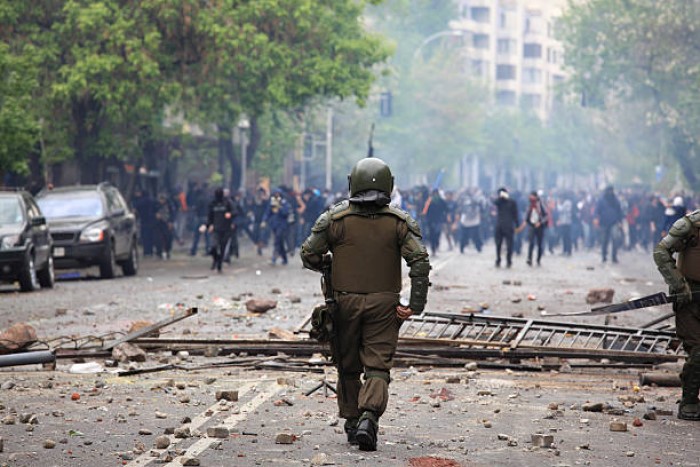
Is Inciting a Riot a Felony? When people gather in large numbers for protests or demonstrations, emotions often run high. Sometimes, these events can turn violent, and individuals may resort to inciting riots. Inciting a riot is a serious offense that can result in severe consequences. This article covers the definition, penalties, and other relevant info about inciting a riot.
Understanding Inciting a Riot
Inciting a riot is urging people to commit violence, damage property or other crimes during a public disturbance. The key element of this offense is the intention to encourage violence or chaos. For this reason, inciting a riot is often considered a crime against public order.
In many jurisdictions, inciting a riot is a specific criminal offense distinct from other types of crimes that may be committed during a riot, such as vandalism or assault. To be charged with inciting a riot, the prosecution must prove that the accused person acted intentionally and that their actions led to violence or other criminal activity.
Potential Penalties for Inciting a Riot
The penalties for inciting a riot vary depending on the jurisdiction and the circumstances of the offense. In general, inciting a riot is considered a felony offense, meaning a conviction can result in significant prison time and fines.
For example, in California, inciting a riot is a felony offense that can result in a sentence of up to three years in state prison. In contrast, in Texas, inciting a riot is also a felony, but the penalty can range from two to ten years in prison, depending on the severity of the offense.
In addition to criminal penalties, individuals convicted of inciting a riot may also face civil liability for any damages or injuries that result from the riot. For example, if someone incites a riot that leads to property damage or personal injury, they may be held responsible for the costs associated with those damages.
Defenses for Inciting a Riot
There are a few defenses that an accused person may use to fight charges of inciting a riot. One common defense is that the accused did not intend to incite violence or other criminal activity.
Another defense is that the accused exercised their constitutional rights to free speech or assembly. Proving this defense is hard as the First Amendment doesn’t cover speech that incites lawlessness or violence.
Conclusion
Inciting a riot is a serious offense that can have severe consequences. Individuals accused of this offense should seek the advice of an experienced criminal defense attorney who can help them understand their rights and defend against the charges.
It is important to remember that while the First Amendment protects the right to free speech and assembly, it does not protect speech that incites violence or other criminal activity. As such, individuals considering participating in public demonstrations or protests should be mindful of their actions and avoid engaging in behavior that could be interpreted as inciting a riot.
FAQs
What is the difference between inciting and participating in a riot?
Inciting a riot refers to encouraging or provoking others to engage in violent behavior during a public disturbance. Participating in a riot refers to engaging in violent behavior during a public disturbance.
Can I be charged with inciting a riot if I did not participate in the violence?
Encouraging violence in a public disturbance can lead to a rioting charge, even if you didn’t participate in the violence.
What are the potential consequences of inciting a riot?
Inciting a riot is a felony offense that can result in significant prison time and fines. The same penalties vary depending on the jurisdiction and the circumstances of the offense.
Can I use the defense of freedom of speech if I am charged with inciting a riot?
Free speech isn’t always protected if it incites violence or lawlessness, making it hard to defend in some cases.
Can I be held civilly liable for damages or injuries resulting from a riot that I incited?
Individuals convicted of inciting a riot may also face civil liability for any damages or injuries resulting from the riot. You’re liable for riot-related property damage or injury costs, meaning you’ll have to pay them yourself.
What should I do if I am accused of inciting a riot?
If you’re accused of inciting a riot, it’s crucial to seek advice from a criminal defense lawyer immediately. Your attorney can help you understand your rights and develop a defense strategy to fight the charges.
In conclusion, inciting a riot is a serious criminal offense that can result in significant penalties. While the First Amendment protects the right to free speech and assembly, individuals must be mindful of their actions during public disturbances to avoid engaging in behavior interpreted as inciting a riot. Suppose you are accused of inciting a riot. In that case, it is essential to seek the advice of an experienced criminal defense attorney who can help you navigate the legal system and defend against the charges.







